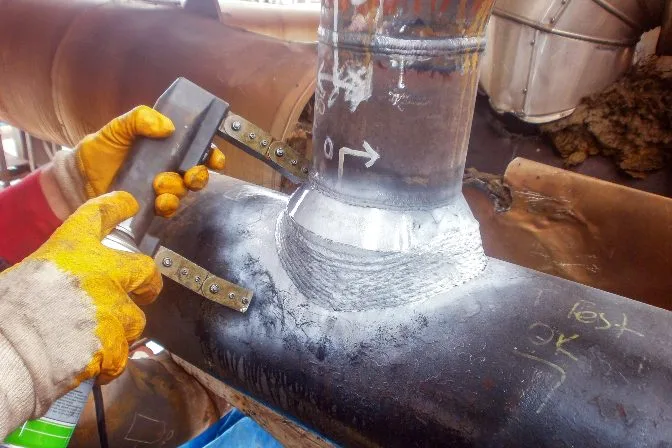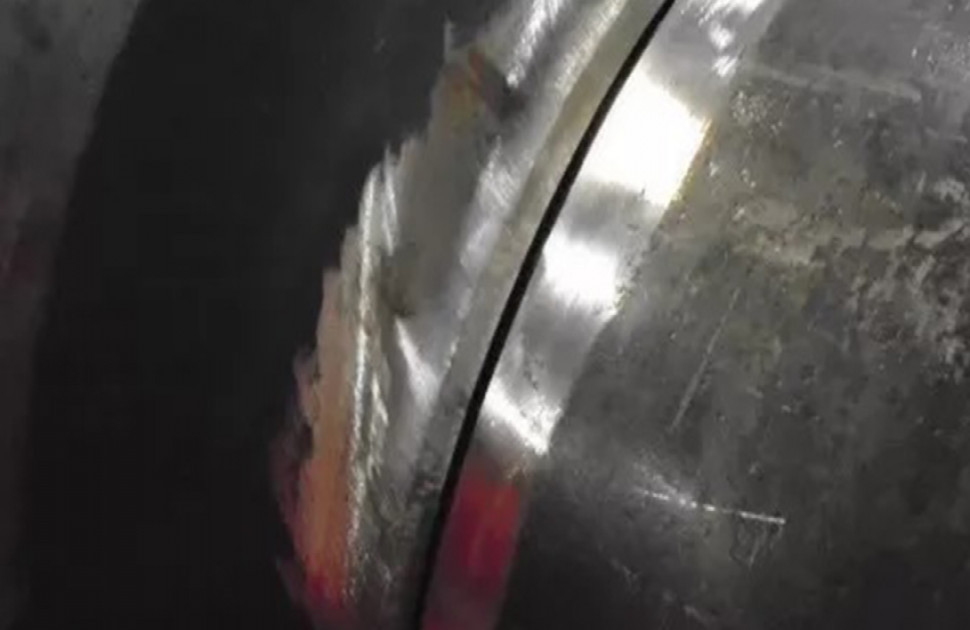Why Welding Inspection Milwaukee Is Important for Industrial Applications
A Comprehensive Overview to Welding Inspection Techniques and Finest Practices for Top Quality Assurance in Fabrication Projects
Welding examination offers as an essential pillar in ensuring the structural stability and safety and security of produced jobs. Using a range of methods-- ranging from visual analyses to sophisticated approaches like radiographic and ultrasonic screening-- provides vital insights right into potential flaws that might undermine stamina. Establishing reliable methods and a robust top quality monitoring system can enhance compliance and dependability. The intricacies of these techniques and their implementation usually increase essential concerns regarding the devices and criteria necessary for optimum results. What details methodologies will be most effective in your projects?
Relevance of Welding Evaluation
Welding evaluation is a crucial part in making certain the stability and safety and security of bonded frameworks. The procedure entails a methodical assessment of welds to determine any kind of problems that may compromise the toughness and resilience of the end product. Effective inspection is essential not only for compliance with industry criteria and regulations but also for safeguarding the health and security of personnel and the general public.

Additionally, welding examination acts as an important tool for continual renovation in construction processes. By determining reoccuring concerns, companies can execute corrective procedures, bring about enhanced training for welders and much better general methods. Inevitably, prioritizing welding examination cultivates a culture of quality control, guaranteeing that tasks satisfy both client assumptions and governing demands. This positive approach is critical for achieving quality in welding and manufacture.
Typical Welding Inspection Strategies
Numerous strategies are utilized to evaluate welds, each tailored to spot details sorts of defects and make sure quality. Among one of the most commonly used techniques are aesthetic assessment, ultrasonic testing, radiographic screening, magnetic particle testing, and color penetrant screening.
Visual examination is the most straightforward approach, allowing examiners to recognize surface area irregularities such as splits, porosity, and undercutting. Ultrasonic screening utilizes high-frequency acoustic waves to discover interior imperfections, offering an extensive assessment of weld honesty. Radiographic screening utilizes X-rays or gamma rays to develop pictures of the weld, revealing interior problems that are not noticeable to the naked eye.
Magnetic bit screening is particularly efficient for ferromagnetic products, identifying surface area and near-surface defects by applying electromagnetic fields and using fine fragments that indicate irregularities. Color penetrant screening entails applying a tinted dye to the weld surface, which seeps right into splits and is exposed under ultraviolet light, making it easy to identify problems.
Each of these methods plays a vital role in maintaining welding quality, and the option of a suitable approach relies on the specific demands of the construction job, including product kind, weld arrangement, and the preferred level of inspection.
Essential Evaluation Tools


Determining tools, consisting of calipers, assesses, and rulers, are crucial for verifying measurements and resistances. These tools help ensure that welds like it meet the required requirements for toughness and resilience. Furthermore, ultrasonic testing gadgets are used to identify interior imperfections without compromising the integrity of the weld. This non-destructive testing method is vital for identifying problems that may not show up on the surface.
One more indispensable tool is the firmness tester, which evaluates the mechanical residential properties of a weld and establishes its viability for certain applications. Lastly, welding examination software help in recording findings, facilitating information evaluation, and ensuring compliance with sector requirements. With each other, these vital examination tools develop a comprehensive arsenal that supports the welding inspection process, eventually contributing to the top quality assurance of fabrication tasks.
Ideal Practices for High Quality Assurance
In the search of quality control, implementing best methods is essential for attaining regular and trustworthy welding end results. Developing an extensive welding top quality administration system (WQMS) is fundamental. This system ought pop over to this web-site to include defined treatments, criteria, and paperwork practices that guide every stage of the welding process.
Normal training and certification of welding employees are vital. Knowledgeable welders with updated knowledge of methods and precaution contribute considerably to top quality. Furthermore, conducting pre-welding evaluations makes sure that materials and devices meet specified standards, minimizing the chance of issues.
Incorporating real-time surveillance during the welding procedure allows for prompt discovery of abnormalities, enabling rehabilitative actions to be taken immediately. Post-welding examinations, consisting of aesthetic checks and non-destructive screening (NDT), are crucial in confirming weld integrity and compliance with market standards.
Additionally, preserving meticulous documents of evaluations, weld parameters, and corrective actions cultivates a culture of liability and continual enhancement. Involving stakeholders in routine high quality reviews can likewise improve the general efficiency of quality control steps. By adhering to these ideal techniques, organizations can substantially elevate their welding quality control efforts, therefore making sure task success and client satisfaction.
Enhancing Safety And Security and Compliance
Attaining high standards in welding quality control naturally straightens with the critical of enhancing safety and security and compliance within the market. Reliable welding inspection strategies are vital in determining prospective threats and making sure that all procedures comply with regulatory criteria. These techniques not only offer to preserve architectural stability but also secure the health and safety and security of workers associated with manufacture projects.
Implementing strenuous inspection procedures, such as aesthetic evaluations, non-destructive screening (NDT), and extensive documents, develops a culture of safety and security and responsibility. Educating welders and inspectors in current security regulations and finest techniques is vital. This ensures that all team members recognize prospective threats and are equipped to reduce them.
In addition, compliance with sector standards, such as those set by the American Welding Society (AWS) and the International Organization for Standardization (ISO), is non-negotiable. Normal audits and analyses aid determine spaces in security steps and advertise continuous improvement - Welding Inspection Milwaukee. Inevitably, a commitment to enhancing security and conformity not just cultivates a more secure working atmosphere however likewise brings about superior high quality end results and minimized liability for companies participated in welding construction
Conclusion
Welding inspection serves as a basic pillar in making certain the architectural integrity and safety of fabricated jobs.Welding examination is a vital part in making certain the honesty and safety of welded frameworks. Ultimately, focusing on welding inspection fosters a society of top quality guarantee, ensuring that projects fulfill both customer expectations and regulative requirements. Together, these crucial assessment devices form an extensive collection that supports the welding assessment procedure, eventually adding to the quality assurance of construction jobs.
In verdict, efficient welding inspection is critical for guaranteeing the architectural integrity and safety of produced tasks. Welding Inspection Milwaukee.